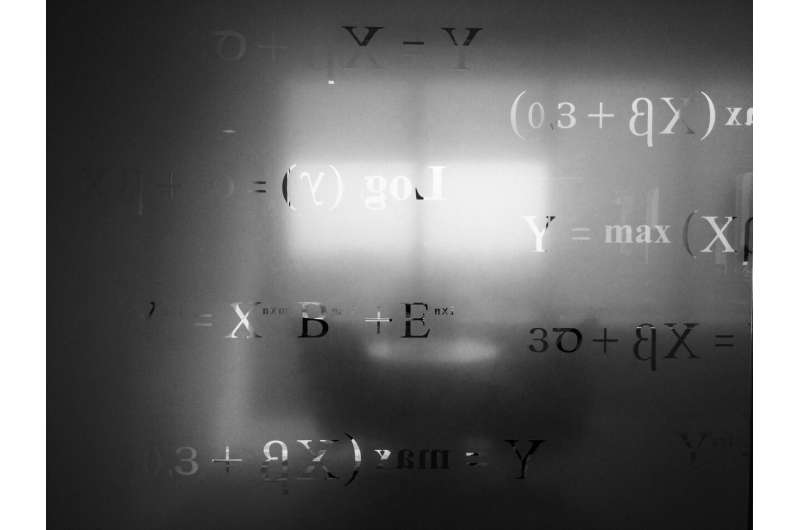October 3, 2023 report
This article has been reviewed according to Science X's editorial process and policies. Editors have highlighted the following attributes while ensuring the content's credibility:
fact-checked
peer-reviewed publication
trusted source
proofread
Mathematical bedtime stories may build better mathematical memory

Researchers Jayne Spiller and Camilla Gilmore at the Center for Mathematical Cognition, University of Loughborough, U.K., have investigated the intersection of sleep and mathematical memory, finding that sleep after learning improves recall.
In their paper, "Positive impact of sleep on recall of multiplication facts," published in Royal Society Open Science, the duo investigated whether learning complex multiplication problems before sleep would benefit recall compared to learning them during wakefulness to understand how sleep affects the memory of mathematical facts, specifically multiplication tables.
The study involved 77 adult participants aged 18 to 40 from the U.K. Each participant learned complex multiplication problems in two conditions: before sleep (sleep learning) and in the morning (wake learning). Participants completed online sessions where they learned new complex multiplication problems or were tested on previously learned material. Learning sessions included both untimed and timed trials.
Participants had better recall in the sleep learning condition than in the wake learning condition, with a moderate effect size. Even when participants had varying learning abilities, the sleep learning condition showed a beneficial effect on recall, with a smaller effect size.
Mathematical proficiency of the participants, as measured by accuracy in simple multiplication problems, was associated with learning scores but not with the extent of sleep-related benefit for recall.
The study highlights the potential educational implications of leveraging sleep-related benefits for learning. The positive impact of sleep on the recall of complex multiplication problems could be particularly useful for children learning multiplication tables or other math memorization skills, though it would be interesting to see how well a bedtime math lesson would be received.
While the authors suggest that sleep conferred the additional benefit on recall compared with learning during the daytime, the mechanisms by which encoding takes place are possibly enforced by a lack of continued external inputs. The authors point out this limitation of a lack of other comparative stimuli with a similar complexity of encoding to conclusively demonstrate in their study the specificity of sleep-related benefits on recall.
Asleep, the brain may be locking in the new learning because it has no other competition. In contrast, an awake brain may be confronted with conversations, media reading or viewing and even other classes packed with learning material. This competition for memory encoding in the waking brain could be the cause of the memory differences seen in the study, though outside of recommending multi-hour meditation sessions between classes the likelihood of finding an alternative to sleep on memory may be limited.
More information: Jayne Spiller et al, Positive impact of sleep on recall of multiplication facts, Royal Society Open Science (2023). DOI: 10.1098/rsos.230663
Journal information: Royal Society Open Science
© 2023 Science X Network




















